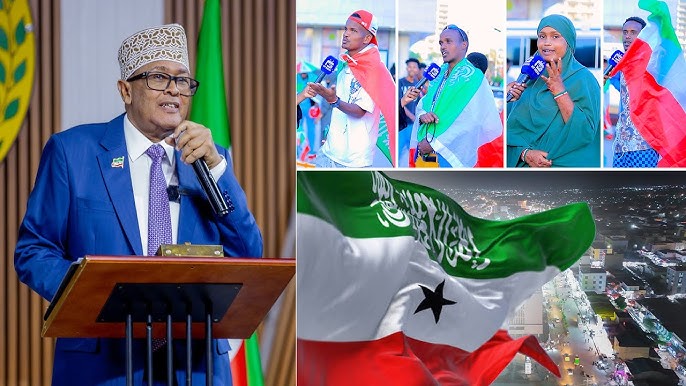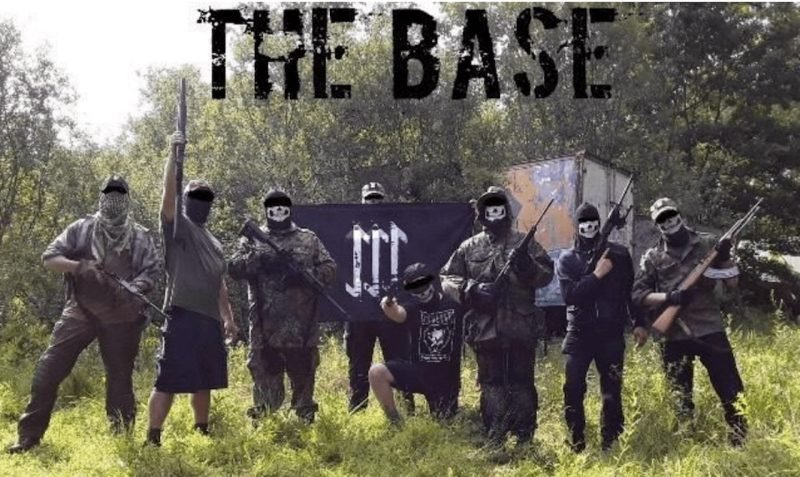







Ireland, Norway and Spain each announced Wednesday the recognition of a Palestinian state, citing the Israel-Hamas war in Gaza and a need to achieve a two-state solution for lasting peace in the region.
“The ongoing war in Gaza has made it abundantly clear that achieving peace and stability must be predicated on resolving the Palestinian question,” Norway Prime Minister Jonas Gahr Støre said. “The war is the lowest point in the prolonged Israeli-Palestinian conflict. The situation in the Middle East has not been this grave for many years.”
Israel quickly denounced the diplomatic declarations by the three countries, with Israeli Prime Minister Benjamin Netanyahu declaring that Hamas had won a “prize for terrorism.”
He said a Palestinian nation “would be a terrorist state. It would try to carry out the October 7 massacre again and again – and that, we shall not agree to.”
Norway said there is broad international consensus about the need for a two-state solution, including an overwhelming vote at the U.N. General Assembly this month to recognize the Palestinians as qualified to join the world body.
Spain’s Prime Minister Pedro Sánchez said the decision was based on “peace, justice and coherence.”
“Time has come to move from words into action,” Sánchez said.
The three countries said their recognition of a Palestinian state will take effect May 28.
Riyad Mansour, the Palestinian ambassador to the United Nations, called it “a wonderful moment…. This European wave, hopefully, will be followed by other waves.”
In Washington, the White House National Security Council said President Joe Biden “is a strong supporter of a two-state solution and has been throughout his career.”
However, it said Biden “believes a Palestinian state should be realized through direct negotiations between the parties, not through unilateral recognition.”
Israeli Foreign Minister Israel Katz immediately announced the recall of Israel’s ambassadors from all three countries that recognized a Palestinian state.
“History will remember that Spain, Norway, and Ireland decided to award a gold medal to Hamas murderers and rapists,” Katz said.
Katz said recognizing a Palestinian state is a reward to Hamas and Iran, and an “injustice to the memory” of those killed in the Oct. 7 Hamas attack on Israel that killed 1,200 people and led to the capture of about 250 hostages.
Israel’s subsequent seven-month counter-offensive in Gaza has killed more than 35,000 civilians and combatants, although the Gaza Health Ministry says most of the dead are women and children.
“Israel will not remain silent in the face of those undermining its sovereignty and endangering its security,” Katz said.
Ireland’s prime minister, Simon Harris, said Ireland unequivocally recognizes Israel and its right to exist “securely and in peace with its neighbors.” Harris called for all the hostages currently being held by Hamas in Gaza to be released.
Harris pointed to Ireland’s own history and the importance of getting recognition from other nations.
The vision for a Palestinian state put forward by Norway is not one led by the Hamas militants who have ruled the Gaza Strip since 2007, but one derived from the Palestinian Authority in charge of parts of the West Bank.
Norway’s Støre said the situation in the Middle East “has not been this grave for many years,” and that recognizing a Palestinian state is a way of “supporting the moderate forces which have been losing ground in this protracted and brutal conflict.”
“In the midst of a war, with tens of thousands killed and injured, we must keep alive the only alternative that offers a political solution for Israelis and Palestinians alike: Two states, living side by side, in peace and security,” Støre said.
Aid suspension
The United Nations has suspended food distribution in Rafah on Gaza’s southern border due to depleted supplies and insecurity.
U.N. spokesman Stephane Dujarric said Tuesday the distribution centers of the World Food Program and UNRWA, the agency for Palestinian refugees, are inaccessible because of the ongoing Israeli military operation in Rafah.
About 1.1 million people face high levels of hunger, the U.N. said. The Rafah crossing into Egypt, once the main entrance for aid, has been closed since May 6, and no aid trucks have crossed the U.S.-built floating pier in two days, the U.N. said.
A WFP spokesperson said the “humanitarian operations in Gaza are near collapse.” Abeer Etefa warned that if food and other supplies don’t resume entering Gaza in “massive quantities, famine-like conditions will spread.”
In addition, UNRWA said its health centers have not received any medical supplies in 10 days, but its health care staff still conducts medical consultations at its centers that remain open.
Some information for this report came from The Associated Press, Agence France-Presse and Reuters.

When the lights went out across Spain and Portugal, chaos followed. It wasn’t just a blackout — it was a warning.
A massive blackout crippled Spain, Portugal, and parts of France, exposing how fragile modern life truly is. Chaos erupted on trains, in metros, in streets — and in hearts.
It began as a flicker.
Then the lights failed.
Then the panic began.
Across Spain, Portugal, and parts of France, a massive, unexpected power outage plunged millions into a medieval nightmare — exposing how fragile modern life truly is.
Trains froze mid-journey.
Metros choked with panicked commuters.
Supermarkets shuttered.
Gas stations went dark.
Phones and ATMs blinked off.
Food supplies and communications collapsed within hours.
It wasn’t just an inconvenience — it was a glimpse into systemic collapse.
Peter Hughes never expected his journey to Madrid would turn into an endurance test.
Four hours trapped in a dead train.
No power. No working toilets. No way home.
Across the Iberian Peninsula, hundreds of trains froze, leaving thousands stranded — many without ventilation, water, or clear information.
In the countryside, local villagers became heroes, handing out food and water to stunned passengers.
In Madrid, Lisbon, Valencia, and dozens of other cities, traffic lights collapsed into chaos, public transport died, and businesses slammed their doors shut.
With card payments offline, a desperate cash economy reemerged almost instantly.
Hospitals switched to emergency generators.
Airports barely functioned on backup systems.
And with no reliable mobile data, millions were left in the dark — literally and figuratively.
For many, the experience was more than inconvenient — it was terrifying.
“You realize within an hour how much of your survival depends on invisible systems,” said Eloise Edgington, a stranded copywriter in Barcelona.
When power, money, communication, and movement all collapse at once, the modern world reveals itself as frighteningly brittle.
Authorities rushed to contain the damage.
Power companies promised restoration within hours — but it took much longer. Some areas are still struggling.
Meanwhile, questions linger:
How could an entire modern energy grid collapse so easily?
What would happen if next time it wasn’t just accidental — but deliberate?
If a blackout of this scale can occur without warning, what happens in a real cyberwar, sabotage event, or systemic failure?
Today, it was trains, supermarkets, and traffic lights.
Tomorrow — it could be far worse.
The Iberian blackout wasn’t just a one-day crisis.
It was a dress rehearsal for a new age of fragility.
And most were terrifyingly unprepared.

Early Monday morning, a series of mortar rounds fired by the Al-Shabaab terrorist group struck critical areas inside Mogadishu, including the heavily fortified Halane camp — home to key international agencies — and the electricity infrastructure in Wadajir district, according to initial reports.
Residents and aid workers reported warning sirens and explosions echoing through the area before dawn, triggering fears of wider attacks across Somalia’s fragile capital.
Sources confirm that multiple mortars landed inside Halane, where United Nations missions, embassies, and international NGOs are headquartered.
At the same time, blasts reportedly disrupted sections of the Wadajir power grid, though full details on damage and casualties remain unclear.
Earlier this month, international organizations had issued warnings to their employees stationed inside Halane and nearby facilities, citing a credible threat of incoming Al-Shabaab operations.
This morning’s attack validates those concerns and signals an increasing inability of Somali security forces to secure even the capital’s most protected zones.
As of this publication, the Somali federal government has issued no official statement on the attack, despite a growing pattern of mortar and small-arms strikes throughout Mogadishu in recent weeks.
Security analysts say the repeated attacks underscore:
Al-Shabaab’s operational resilience, despite military pressure.
Somalia’s deteriorating security environment ahead of key international engagements.
The high vulnerability of diplomatic and humanitarian operations in Mogadishu.
The latest strike comes amid a wider offensive resurgence by Al-Shabaab across Somalia’s central and southern regions, while the African Union’s AUSSOM forces report needing 8,000 additional troops to prevent total collapse of gains made in recent years.
Halane camp, once considered a fortress, now faces real and persistent threats, with international workers increasingly questioning how much longer operations can continue under such instability.

Police warn of arrests as political tensions rise before Independence Day; only the official national flag permitted.
Somaliland’s leadership is drawing a sharp red line ahead of its most sacred national day.
In a decisive move, Police Commissioner Abdirahman Abdillahi Hassan, known as Abdi Dheere, announced a sweeping ban on unauthorized flags during the upcoming May 18 Independence Day celebrations.
Only one flag — the official Somaliland national flag — will be tolerated.
Anyone displaying clan banners, political party colors, or alternative symbols will face immediate arrest, according to the new police directive.
“Somaliland has only one recognized flag,” Commissioner Abdi Dheere declared at a Sunday press conference in Hargeisa.
“Our forces have orders to detain anyone violating this directive.”
The crackdown extends to markets, public spaces, and social media, where clan-based and political banners have appeared in growing numbers in recent weeks.
This year’s May 18 commemorations — marking Somaliland’s 1991 break from Somalia — come amid rising political tensions.
Videos have surfaced showing critics of President Abdirahman Mohamed Abdullahi Irro’s administration waving clan flags and calling for alternative celebrations.
Some activists on social media have openly declared plans to organize “independent May 18 events” — a move authorities see as a dangerous fracture of national unity.
For Somaliland’s government, May 18 is more than a holiday — it is a critical platform to demonstrate unity, legitimacy, and sovereignty to the world.
Any public fragmentation — even symbolic — threatens the region’s long-standing quest for international recognition.
The police order is not just about flags — it is about who controls the meaning of Somaliland’s independence.
Officials are determined to prevent political opponents or clan factions from hijacking the day’s symbolism for their own agendas.
On May 18, there will be no divided banners. There will be only Somaliland — or there will be consequences.

A doctor.
A marriage.
A Mercedes-Benz.
A silent epidemic exposed.
When Dr. Celiwe Ndaba opened her heart to South Africa, she didn’t just tell her story —
She pulled the mask off a brutal national reality.
Financial abuse is the new frontline of South Africa’s gender war.
And even success, money, and education are no longer shields.
Across TikTok, Instagram, and living rooms, thousands of women — doctors, lawyers, entrepreneurs — are confessing the same nightmare:
They loved.
They gave.
They sacrificed.
And they were economically drained — left holding debts, shame, and broken dreams.
“I paid for his car. His business. His image.
He paid me back with betrayal.”
This is not poverty.
This is not “bad luck.”
This is systemic gender warfare, disguised as love.
South African women face two chains, not one.
At work, they must shine.
At home, they must shrink.
Sociologist Nombulelo Shange calls it “double patriarchy” —
“Western pressure to succeed clashes with traditional demands to serve male egos.”
It’s not enough to become a doctor, lawyer, or CEO.
You must also be the good wife, the silent provider, the eternal fixer of broken promises.
You must pay — and smile while doing it.
Women are out-earning men more than ever in South Africa.
But success has made them targets.
Cultural expectations still whisper:
“A real man provides. A real woman makes him look like he did.”
That’s why women hand their debit cards to boyfriends at restaurants —
Why they co-sign loans for luxury cars they’ll never drive —
Why they cover rent, groceries, school fees, while their partners “manage their pride.”
Financial control becomes emotional domination.
Economic abuse becomes spiritual warfare.
Love becomes debt bondage.
For every woman speaking out, hundreds stay silent — trapped by shame, fear, or misguided hope that sacrifice will heal the wound.
By the time the divorce papers come, the credit cards are maxed out, the bank accounts drained, the dreams postponed.
And society still whispers:
“You should have known better.”
No.
We should have built a society where men know better.
Dr. Ndaba’s story is not just about marriage.
It’s about survival.
Women must understand:
Love without respect is a prison.
Affection without financial dignity is a weapon.
Success without protection is vulnerability.
Love should not cost your freedom.
The gender crash has arrived.
South Africa must choose:
Change the culture — or watch it burn.
Success Made Her a Target: How South African Women Are Being Financially Hunted

🔗 Follow waryatv.com for deep-dive exposes on the gender revolution shaking South Africa.

Confidential Russian diplomatic letters exposed — Somaliland’s foreign diplomacy collapses as Mogadishu capitalizes.


WARYATV exposes how Somaliland’s mishandling and leaks of confidential Russian outreach allowed Mogadishu to steal a historic opportunity.
In a stunning revelation, WARYATV has obtained confidential documents proving that the Russian Foreign Ministry formally proposed opening direct diplomatic engagement with Somaliland — including a strategic visit to Berbera Port.
Instead of seizing the historic opportunity, Somaliland’s Foreign Ministry bungled the moment, leaking highly sensitive communications, and delivering a shockingly unprofessional rejection to Moscow.
Today, Russia’s Deputy Foreign Minister landed in Mogadishu, not Hargeisa — marking Russia’s first official visit to Somalia in decades.
Somalia is now capitalizing on the exact opportunity Somaliland foolishly let slip through its fingers.

Russia’s confidential letter clearly outlined:
Plans for “economic and humanitarian cooperation”
Direct diplomatic engagement in Hargeisa
A proposed high-level visit to Berbera Port, critical to Red Sea geopolitics
But in a response that will go down in diplomatic infamy, Somaliland’s Foreign Ministry wrote back:
“Somaliland is unable to accommodate the proposed visit at this time.”
No counter-proposal. No scheduling. No diplomatic finesse. Just a bureaucratic snub — to a global superpower seeking dialogue.

The deliberate circulation of the Russia-Somaliland correspondence within government circles — and now beyond — is not just incompetence.
It is treasonous sabotage.
Exposing confidential interactions with a superpower mid-negotiation is an act of strategic suicide.
Sources confirm this is not the first time internal Somaliland diplomacy has been sabotaged from within — but this one has delivered catastrophic consequences.
Those responsible must be summoned immediately to the presidency for explanation.
There must be accountability — or Somaliland’s foreign policy credibility will collapse entirely.

Russia’s pivot to Mogadishu now reshapes the strategic map of the Horn of Africa — and Somaliland has no one to blame but its own reckless, self-sabotaging officials.

Imagine Somaliland telling Russia, “We’re busy right now… maybe later.” History does not forgive such arrogance or amateurism.
WARYATV will continue exposing the forces undermining Somaliland’s sovereignty from within.
The people deserve better.

New revelations tie Base terror group leader to Russian intelligence, raising alarms over sabotage operations targeting Zelenskyy and Ukraine’s war effort.

The war against Ukraine isn’t just being fought with tanks and drones — it’s being fueled by Russian-backed extremist terror groups hiding in plain sight.
A Guardian investigation has detonated a political bombshell:
Former members of The Base, a white supremacist terror network designated by the EU and UK, now claim their leader, Rinaldo Nazzaro, is a Kremlin spy running covert sabotage operations inside Ukraine.

Rinaldo Nazzaro
The stunning allegations paint a chilling picture:
Nazzaro, a self-proclaimed Pentagon veteran, is accused of secretly working for Russia’s FSB.
Witnesses say he texted fluently in Russian, bragged about flying back and forth to Moscow, and fled to Russia whenever Base members were arrested.
The group’s latest mission in Ukraine — offering cash for assassinations, sabotage, and attacks on infrastructure — allegedly serves direct Kremlin interests.
Videos have surfaced of Base operatives torching Ukrainian military vehicles and targeting critical energy systems — operations designed to destabilize Zelenskyy’s government from within.
Former Base members now admit:
“This wasn’t about ideology. It was about serving Russia’s war machine.”
Adding to the evidence, Nazzaro controls Base propaganda via VK and Mail.ru — both heavily linked to Putin’s information networks. Massive bot purchases and reward payouts hint at deep, invisible financing — from sources far beyond fringe extremists.
Nazzaro denies the charges, even appearing on Russian state TV to proclaim innocence. But the pattern is clear:
The Kremlin is using Western neo-Nazis as expendable weapons to bleed Ukraine from within.
As Ukraine fights on the frontlines, a second, dirtier war — one of sabotage, infiltration, and treachery — is being waged in the shadows. And Russia’s fingerprints are everywhere.

The most powerful photos capturing the ceremony, emotion and tradition in the Vatican as the world says goodbye to Pope Francis.


Ankara secures 90% of Somalia’s oil and gas profits in landmark deal, sparking fears of energy colonialism under the guise of partnership.
Turkey’s new hydrocarbons deal with Somalia grants it 90% of all oil and gas output with zero upfront costs, raising questions about sovereignty, exploitation, and geopolitical consequences in the Horn of Africa.
Turkey didn’t just strike oil in Somalia — it struck gold. In a sweeping hydrocarbons agreement now before the Turkish Parliament, Ankara has secured 90% of Somalia’s oil and gas output, full export rights, zero upfront costs, and even the legal turf of arbitration on its own soil. Welcome to the 21st-century blueprint of “soft conquest” — wrapped in partnership, sealed with military escorts.
Somalia, teetering between internal fragility and global neglect, has offered up its vast offshore reserves to Turkey on terms that defy global industry norms. No signature bonuses. No surface fees. Only 5% royalties capped for Somalia, and Turkish corporations get to walk away with the lion’s share — free to export, sell, and profit without local interference.
This isn’t partnership. It’s a power grab masquerading as cooperation.

Text of the hydrocarbon agreement between Turkey and Somalia.
Worse still, Turkey can assign its rights to any foreign third party without even opening a local office — a clause that opens the door for opaque subcontracts and external interference in Somalia’s maritime zones. Turkish warships, under the pretext of anti-piracy missions, will escort deep-sea drill ships come September. But what they’re really guarding is Ankara’s geopolitical gamble — a stranglehold on East Africa’s most lucrative energy basin.
The optics are troubling. Somalia’s government, seeking legitimacy and allies, is locking itself into a long-term dependency that gives away critical sovereignty in exchange for vague promises of training and defense aid. If oil is supposed to be Somalia’s path to self-reliance, this deal builds a highway — but Turkey is behind the wheel.
As the global energy chessboard tilts eastward, Somalia risks being reduced to a pawn — or worse, a client state. The message to Mogadishu’s elites is clear: either rewrite this deal, or history will.
How Turkey’s Strategy in Africa Capitalizes on Anti-Western and Anti-China Sentiments
Turkey’s High-Tech Aid to Somalia: Akinci Drones Set to Transform Anti-Terror Strategy
Erdogan’s Ottoman Hustle: How Turkey Is Playing Trump to Crush American Business in Africa
Erdogan’s Horn of Africa Power Grab: Is the Turkish Military Winning Somalia’s Capital?


Saudi Arabia’s Billion-Dollar Bid for Eritrea’s Assab Port


Operation Geel Exposes the Truth: International Community’s Reluctance to Embrace Somaliland as a Strategic Ally


Somaliland and UAE Elevate Ties to Comprehensive Strategic Partnership


How Somaliland Could Lead the Global Camel Milk Industry


Iran escalates conflict, attacking Israel; US forces help Israel to intercept Iranian projectiles


From Cell to Summit: The Prisoner Who Became Syria’s President


Gunmen Kill 11 in Southeastern Nigeria Attack, Army Reports


Israel and Iran on Edge: Tensions Escalate Amidst Rising Threats